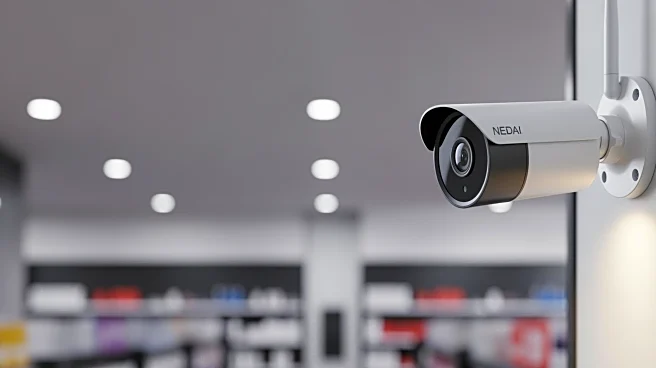What's Happening?
Retailers are facing significant security risks due to outdated devices running on legacy hardware and software. These devices, which include inventory scanners, mobile payment readers, and tablets, are vulnerable
to ransomware, malware, and phishing attacks. Hackers, equipped with generative AI, are exploiting these vulnerabilities, leading to potential disruptions in operations and compromised customer data. The Ponemon Institute reports that 60% of breach victims were compromised due to known yet unpatched vulnerabilities. As the holiday season approaches, retailers are urged to improve device patching and protection to prevent revenue loss and damage to brand reputation.
Why It's Important?
The security risks posed by outdated devices have significant implications for the retail industry, which relies heavily on technology for operations and customer interactions. Retailers handle vast amounts of customer data, making them attractive targets for hackers. The financial and reputational damage from security breaches can be substantial, as evidenced by the ransomware attack on Marks & Spencer, which resulted in significant profit loss and operational disruptions. As sales growth slows, retailers cannot afford the operational friction and security vulnerabilities caused by outdated devices. Addressing these issues is crucial for maintaining customer trust and ensuring smooth operations.
What's Next?
Retailers are advised to update operating systems across their device fleets and replace devices that are too old to update. Implementing zero-touch enrollment and setting devices to kiosk mode can enhance security by ensuring devices are configured with security policies from day one. Educating staff on social engineering trends and fostering a security-first culture are essential steps in mitigating risks. As the holiday season approaches, retailers must prioritize device security to protect their operations and customer data, ensuring they are prepared for potential threats.
Beyond the Headlines
The reliance on outdated devices highlights broader issues in retail technology management, including the need for regular updates and proactive security measures. The integration of AI tools by hackers underscores the evolving nature of cyber threats, requiring retailers to adopt advanced security solutions. The focus on device security reflects a growing awareness of the importance of technology in retail operations, with implications for workforce training and organizational culture. Addressing these challenges can lead to more resilient and secure retail environments, benefiting both businesses and consumers.









